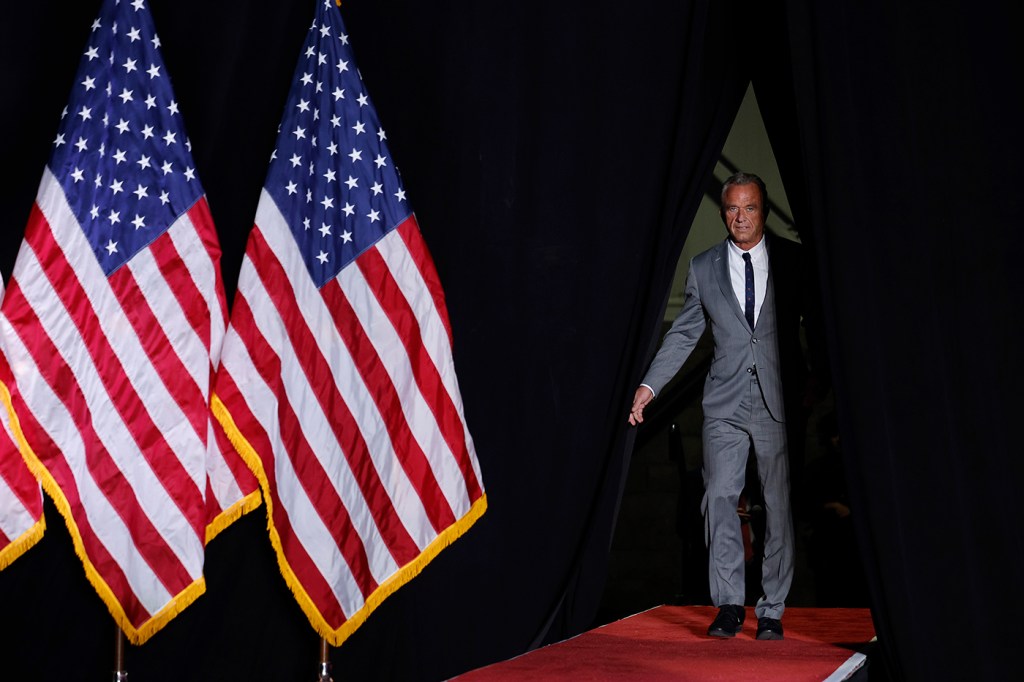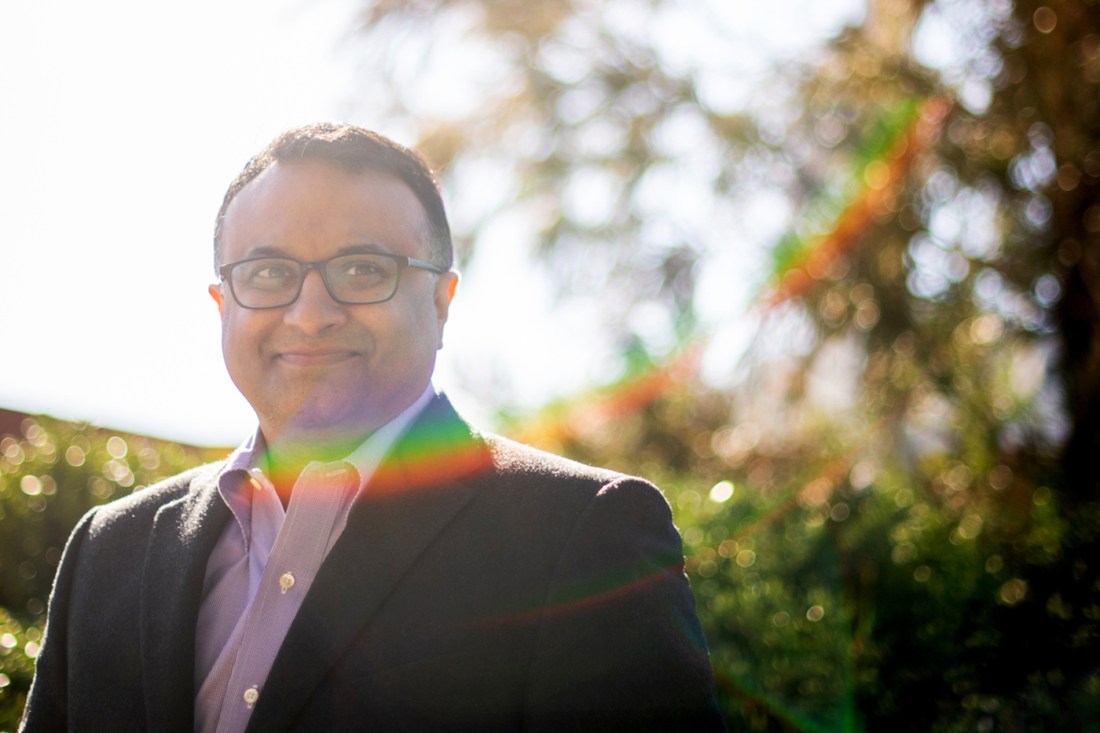Could RFK Jr.’s vaccine skepticism put children at risk for preventable diseases?
“We run the risk of some of these vaccine preventable diseases having a resurgence,” says Neil Maniar, director of Northeastern’s master of public health program.

A Northeastern University professor says public health experts are concerned that vaccine skeptic Robert F. Kennedy Jr. is setting the stage for confusion about childhood vaccination schedules — even among parents who wish to have their children immunized.
In worst-case scenarios, guidance by Kennedy, who may play a key health role in the second Trump administration, will lead to outbreaks of measles and other preventable childhood diseases, says Neil Maniar, director of Northeastern’s master of public health program.
“If we move in a direction where we are going to significantly reduce utilization of vaccines, we run the risk of some of these vaccine preventable diseases having a resurgence,” he says.
“And that could put us back many years in terms of the public health progress we’ve made with regard to vaccination and eradication of disease.”

There’s a vaccination schedule recommended by the Centers for Disease Control and Prevention designed to ensure children are getting the right vaccinations at the right time.
“Some of these vaccinations are given in multiple doses,” he says. “One of the things that is of concern is the possibility of vaccination schedules being interrupted if there’s a significant shift in policy.”
If vaccinations go from being required to optional, there’s a higher chance they will be skipped or not given at all, Maniar says.
“Other things may take priority over getting that vaccination,” he says. “Or parents may say, ‘You know what? I’m going to learn more, but I don’t have time right now to learn more about this. So I’ll wait a while.’”
Kennedy told news reporters he wouldn’t prevent children from being vaccinated but would make it a matter of parental choice.
“People ought to have choice, and that choice ought to be informed by the best information,” he said.
“So I’m going to make sure scientific safety studies and efficacy are out there, and people can make individual assessments about whether that product is going to be good for them,” Kennedy said.
Currently, most public schools require that children be immunized with exceptions usually restricted to religious reasons.
While fully vaccinated children will be protected against measles and other diseases covered by immunizations, children who are just starting their vaccination schedules are more at risk of contracting the illnesses, Maniar says.
Featured Posts
He says children and adults with health issues that put them at risk of lowered immunity are also at risk.
“Vaccines are important for a number of reasons,” Maniar says.
“At an individual level, the vaccines help to either prevent illness or to reduce the severity of illness,” he says.
“More broadly, at a community level, vaccines are really important because once you reach a critical threshold of individuals who are vaccinated, you reach herd immunity with regard to a range of different vaccine preventable illnesses.”
It’s one reason why people seldom hear about outbreaks of measles in the U.S. these days.
“(Herd immunity) helps keep diseases like measles and other vaccine preventable diseases in check,” Maniar says.
Childhood vaccination adherence averages about 72% in the U.S., according to the State Health Access Assistance Center, with Iowa having the highest rate at 87.9% and West Virginia running the lowest at 56.6%.
Rates also varied by ethnicity, being highest among whites at 75.5% and lowest among Blacks at 66.5%.
If vaccination rates drop, “We’re going to have not just variations in herd immunity but we’re going to have outbreaks of vaccine preventable diseases,” Maniar says.
He says Kennedy’s call for scientific safety and efficacy studies on vaccines belies the existing facts.
“There is a very rigorous process that is the foundation of vaccine development and approval,” Maniar says. “All of the vaccines that are on the market right now have been shown to be safe and effective.”
“That doesn’t mean that there are no side effects. We see that with any kind of medical treatment,” he says. But “we have always based this on evidence.”
In talking about dismantling public health agencies, Kennedy is sowing further distrust in institutions that serve the public and spreading misinformation, Maniar says.
Not prioritizing childhood vaccination may mean it’s less likely that public health institutions run under the Trump administration will make an effort to reach all communities, including communities of people who don’t speak English or who are otherwise marginalized, Maniar says.
And that’s an issue since children of color and children in impoverished communities already have lower immunization rates.
“We are going to widen the disparities that already exist around vaccinated rates,” Maniar says.
“There are many layers of risk that are associated with moving from a required vaccine schedule to an optional vaccine schedule that are not fully being appreciated now.”











